22 Herbs For Hair Loss That Stimulate Hair Growth
Let the magical properties of these herbs naturally address your hair issues.
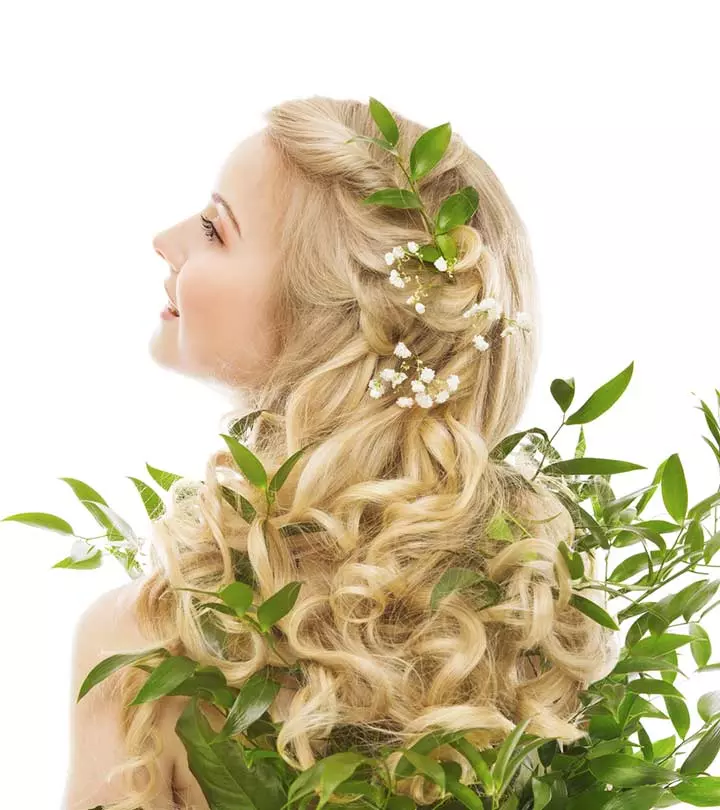
Image: ShutterStock
Herbs are one of nature’s many gifts to humanity as they provide numerous health benefits. Here, we will look into some beneficial herbs for hair loss as they seem to be a safer treatment option than chemical therapies. These natural remedies stimulate hair growth, treat hair loss, and improve hair regrowth without side effects or complications.
Moreover, herbs are inexpensive and natural. Many hair care products on the market today have herbs as their active ingredient (1). In this article, we have listed the most potent 22 herbs for treating hair loss. Continue reading.
In This Article
Herbs To Prevent/Treat Hair Loss And Stimulate Hair Growth
Records in Ayurvedic literature indicate that herbs have been used often to improve hair texture, quality, color, and health (1). These herbs can also be used to wash or dye hair and stimulate healthy hair growth. We have listed some herbs for hair loss that also support overall hair health.
- Henna: Henna is a prominent natural hair dye. Its antifungal properties can help prevent and treat dandruff. It can balance the scalp pH levels and help prevent premature hair fall and graying (2).
- Wild Basil: Basil roots may help treat androgenic alopeciai Also known as male or female patterned baldness, this permanent hair loss is hereditary and brought on by overactive androgen hormones. (3). They can inhibit 5-alpha reductase, an enzyme known to cause androgenic alopecia. Basil’s anti-inflammatory properties help treat scalp issues and other infections that may cause inflammation. It is also known to fortify hair and prevent hair breakage. It improves blood circulation and stimulates hair growth (4).
- Shikakai: The use of shikakai as a hair cleanser, especially in Asia, dates back thousands of years. Massaging a paste made of dried shikakai powder and warm water on the scalp can promote hair growth, toughen the hair strands, and improve the overall health of the scalp (4). Therefore, it may help stop hair thinning.
- Amla: The Indian gooseberry is known for its high vitamin C content that boosts collagen production. Increased collagen production stimulates faster and healthier hair growth (4).
- Rosemary: Rosemary could be as effective as 2% topical minoxidil (a medication for treating hair loss) in treating androgenic alopecia and stimulating healthy hair growth (5). Unlike minoxidil, rosemary oil does not always cause scalp irritation. In mice studies, this herb could induce hair growth (6). It also could help inhibit DHT, a hormone related to hair loss (7).
- Ginkgo biloba: Ginkgo biloba is said to improve circulation and nourish hair follicles (8). Ethanol extracts of this herb were also found to stimulate hair growth (1).
- Hibiscus: Hibiscus flowers contain vitamins and antioxidants that build scalp and hair health. The hydroalcoholic extract of hibiscus was found to promote significant hair growth (9). The hibiscus leaf extract had also shown potency for hair growth (10).
- Ginseng: The Chinese red ginseng may help treat alopecia by inhibiting 5-alpha reductase and improving blood circulation (11). It can also be used as a hair tonic to nourish and strengthen hair (8). Using this Chinese herb for hair growth is an effective approach.
- Aloe Vera: Aloe vera contains proteolytic enzymes that remove dead cells from the scalp and promote hair growth (12). The plant also moisturizes and balances the scalp pH. It can be used to soothe inflammation and treat dandruff as well.
- Giant Dodder: Giant dodder not only treats hair loss but also may induce hair growth (13), (14). It may also help treat alopecia caused by chemotherapy. Giant dodder was also found to inhibit 5-alpha reductase activity (15).
- False Daisy: Bhringraj is a common ayurvedic ingredient. It is often used to promote hair growth (4), (16). This herb is used in ayurvedic medicine to make hair naturally darker. It also may prevent hair graying and may reverse balding (17). The herb may be used to treat scalp issues like eczemai A chronic condition that occasionally flares up and causes dry, itchy skin. It is triggered by contact with allergens or irritants. and dermatitis (18)
- Jasmine: Jasmine has antimicrobial and conditioning properties that may improve hair health (19), (20). The juice from the night jasmine flower can be used as a hair tonic to prevent hair graying or baldness (21).
- Fenugreek: Fenugreek seeds can be as effective as minoxidil in promoting hair growth (22). The seeds contain phytoestrogens that are said to treat hair loss and promote hair growth. They also inhibit DHT activity and help in hair loss prevention or baldness (23).
- Oriental Arborvitae: The Oriental Arborvitae extracts stimulate hair growth by inducing the anagen phasei The hair follicle growth phase that may last up to six years before the hair enters a resting phase. in the resting hair follicles (24). The herb can also be used to treat hair loss (25).
- Neem: Neem is often used in the treatment of head lice (26). Its antifungal properties can effectively treat and eliminate dandruff (27), (28). While neem oil could be potentially used as a treatment for alopecia, it may cause dermatitis and warrants caution (29). The oil contains linoleic and oleic acids that nourish and fortify hair (30). It also may smoothen hair.
- Sage: Sage oil can be used as an anti-dandruff treatment (31). Its leaves can be used in oils to darken hair color (32). It may also be used as a hair conditioner (33). A study showed that sage, when paired with other herbs, can increase hair density and induce the anagen phase in hair follicles (34).
- Burdock: Burdock has anti-inflammatory properties that can be used in scalp treatment (4). It strengthens hair and improves scalp health. It can also be used to treat seborrheic dermatitisi A skin disorder that primarily affects the scalp and results in scaly patches, irritated skin, and persistent dandruff. , psoriasisi A non-communicable autoimmune condition that causes dry, itchy, and scaly patches on the skin. , and dandruff; and helps balance an oily scalp (35).
- Stinging Nettle: Stinging nettle keeps testosterone from turning into DHT (this conversion is the major cause of hair loss in men) (8). It can be used to treat telogen effluviumi A temporary condition where hair begins to fall out 2–3 months after a stressful event, such as childbirth or surgery. as it has regenerative properties that activate hair follicles (36).
- Jatamansi: Jatamansis rhizome extract is often used in hair tonics to stimulate hair growth (33). It also deepens hair color (making it darker) and improves hair luster (31), (37). It has even been studied to stimulate hair growth for cancer therapy (38). In another study, an herbal formulation containing jatamansi was found to reduce hair loss (39).
- Saw Palmetto: Saw palmetto reduces hair loss and promotes hair follicle regrowth (8). It prevents the conversion of testosterone to DHT and helps curb hair loss (40). It is also often used in hair masks and shampoos to regulate sebum production.
- Ashwagandha: Ashwagandha has the potential to mitigate stress-induced hair loss as it possesses mood-enhancing properties that aid in stress and anxiety management. It is also abundant in antioxidants, which safeguard cells from free radical damage (41). These antioxidants also sustain the shine of hair fibers and shield them against UV radiation (42). Moreover, ashwagandha extract has antibacterial and anti-inflammatory attributes that help relieve irritated, itchy scalp (41). It also stimulates dehydroepiandrosterone (DHEA) production, thereby enhancing collagen and sebum production in the scalp (43).
- Peppermint: Peppermint delivers a cooling sensation that alleviates itchiness, offering relief to dry scalps (44). It may also promote hair growth. A study found that a 3% peppermint essential oil solution thickened hair follicles in mice, surpassing the effects of minoxidil, an FDA-approved hair loss treatment (45). Using it consistently may enhance blood flow to the hair follicles, promoting overall hair health.
 Quick Tip
Quick TipApart from these herbs for hair growth, there are also herbal supplements that may help improve hair health. However, you can concentrate on natural remedies that boost your hair growth. So, here are certain DIY recipes you can try at home using these herbs.
Key Takeaways
- The juice from the night jasmine flower can prevent hair graying and baldness.
- Saw Palmetto reduces hair loss and promotes hair follicle regrowth.
- Although herbs are potentially safe, some may cause allergic reactions in certain individuals.
How To Use Herbs For Hair Growth
1. Aloe Vera
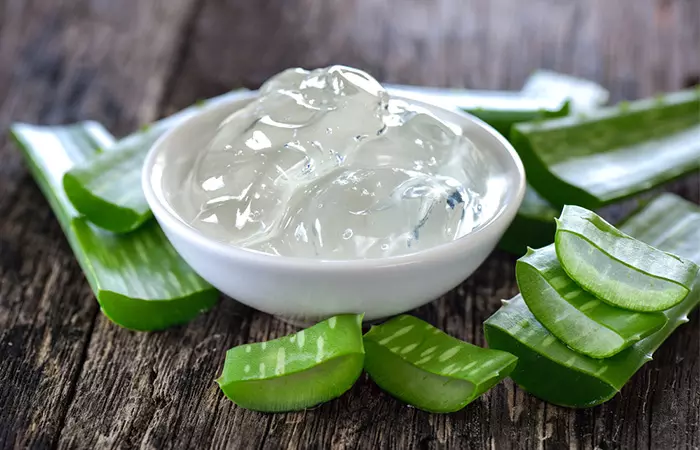
You Will Need
- 2 tablespoons of aloe vera gel
Processing Time
2 hours
Process
- Slice the aloe vera stem and scoop out two tablespoons of the gel.
- Apply the extracted gel to your scalp and gently massage it for a couple of minutes.
- Leave the gel in your hair for 2 hours and wash it off using a mild shampoo.
How Often?
Repeat this twice a week.
2. Ginseng
You Will Need
- 2 to 3 tablespoons of ginseng infused oil
Processing Time
45 minutes
Process
- Pour the ginseng infused oil into a bowl.
- Section your hair and start massaging the oil into your scalp.
- Work the oil into your hair and cover its entire length.
- Massage your scalp for 10 minutes.
- Leave the oil in your hair for an additional 30 minutes, and rinse with a mild shampoo.

How Often?
Repeat this thrice a week.
 Quick Tip
Quick Tip3. Rosemary And Coconut Oil
You Will Need
- 5 to 10 drops of rosemary essential oil
- 2 to 3 tablespoons of coconut oil
Processing Time
45 minutes
Process
- Combine the rosemary essential oil and a carrier oil (such as coconut, olive, almond, or jojoba oils) in a bowl.
- Massage this oil blend into your scalp and work it through the length of your hair.
- Massage your scalp for 10 minutes.
- Leave the oil in your hair for an additional 30 minutes, and rinse with a mild shampoo.
How Often?
Repeat this thrice a week.
4. Indian Gooseberry And Lemon Juice
You Will Need
- 4 tablespoons of Indian gooseberry powder
- 2 teaspoons of lemon juice
- Water, as needed
Processing Time
20 minutes
Process
- Mix the water, Indian gooseberry powder, and lemon juice in a bowl (you must get a smooth, consistent paste).
- Massage the paste into your scalp and apply it to the entire hair length.
- Let it sit for 15 minutes and rinse with a mild shampoo.
How Often?
Repeat this twice a week.
5. Neem Juice
You Will Need
- A bunch of neem Leaves
- 2 cups of water
Processing Time
5 minutes
Process
- Boil the neem leaves in the two cups of water for 10 minutes. Set aside to cool.
- Strain the liquid into a jug once it has cooled down.
- Wash your hair with a mild shampoo and pour the neem-infused water through your hair as a final rinse.
- Do not rinse your hair further.
How Often?
Do this after every wash.
Note: Neem oil is generally strong. Mix it with a lighter oil such as that of olive, coconut, or almond before application.
6. Sage Water
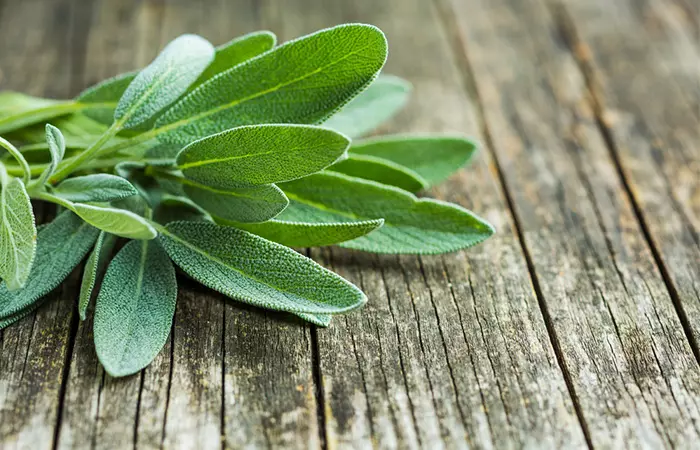
You Will Need
- 2 tablespoons of dried sage leaves
- 2 cups of water
Processing Time
5 mins
Process
- Boil the dried sage leaves in 2 cups of water for 10 minutes. Set aside to cool.
- Strain the liquid into a jug once it has cooled down.
- Wash your hair with a mild shampoo and pour the sage-infused water through your hair as a final rinse.
- Do not rinse your hair further.
How Often?
Do this after every wash.
7. Burdock And Aloe Vera
You Will Need
- 2 drops of rosemary essential oil
- 2 drops of basil essential oil
- 2 drops of lavender essential oil
- 1 teaspoon of aloe vera gel
- 1 teaspoon of burdock oil
Processing Time
2 hours
Process
- Mix all the ingredients in a bowl.
- Rub the oil blend into your scalp.
- Massage your scalp for a few minutes and leave the oil mixture in for a couple of hours.
- Rinse with a mild shampoo.
How Often?
Repeat this thrice a week.
8. Bhringraj And Sesame Oil
You Will Need
- A bunch of bhringraj leaves
- 1 cup of sesame oil
Processing Time
45 minutes
Process
- Finely chop the bhringraj leaves and heat them in a saucepan with the oil.
- Keep the oil on the heat for 10 minutes and set it aside to cool.
- Section your hair and start massaging the oil into your scalp.
- Work your way through the entire hair length.
- Wait for 30 minutes and rinse with shampoo.
- Store the excess oil away for later use.
How Often?
Repeat this thrice a week.
9. Jatamansi And Coconut Oil
You Will Need
- 5 drops of jatamansi essential oil
- 2 tablespoons of carrier oil (coconut/sesame)
Processing Time
45 minutes
Process
- Combine the oils in a bowl to create a jatamansi oil blend.
- Start massaging this oil blend into your scalp and work your way down to the hair tips.
- Massage your scalp for an additional 10 minutes.
- Leave it on for 30 minutes and rinse with shampoo.
How Often?
Repeat this thrice a week.
10. Curry Leaves And Coconut Oil
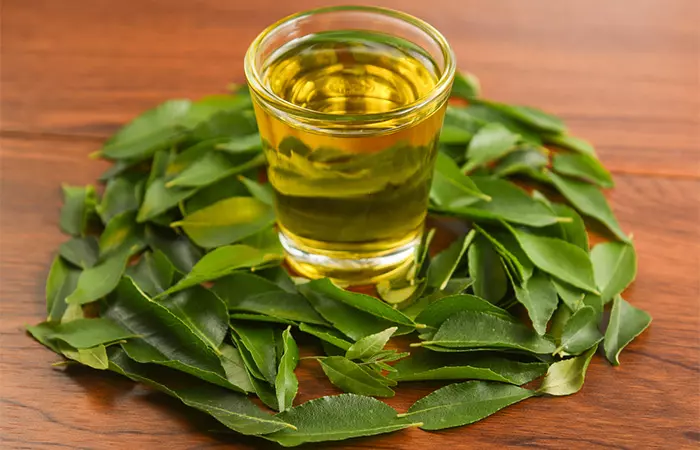
You Will Need
- A handful of curry Leaves
- 2 tablespoons of coconut oil
Processing Time
45 minutes
Process
- Heat the oil and curry leaves in a saucepan until the oil starts to take on a brown color.
- Let the curry leaves-infused oil cool. Massage it into your scalp and apply it to the length of your hair.
- Leave this oil on for at least 30 minutes. You can also leave it on overnight.
- Rinse with shampoo.
How Often?
Repeat this thrice a week.
11. Holy Basil And Olive Oil
You Will Need
- A handful of holy basil leaves
- 2 to 3 tablespoons of olive oil
Processing Time
45 minutes
Process
- Dry the basil leaves in the sun and grind them to a fine powder.
- Mix the basil powder with slightly preheated olive oil.
- Sieve the oil in a muslin cloth and apply it to your scalp and hair.
- Massage your scalp for 10 minutes and leave the oil on for 30 minutes.
- Rinse with shampoo.
- Large quantities of this oil can be stored in a jar or bottle with a tight cap and placed in the refrigerator. The oil can be stored for 11 days.
How Often?
Repeat this thrice a week.
12. Soapnuts And Amla
Doro Cubillo, a YouTuber, shared her experience of using amla oil for her hair for 7 days. She said, “ When I started this challenge on day 1, my hair was at 34 inches long. By the end of seven days my hair finally reached almost 35 inches. So, at the end, there was amazing hair growth (i).”
You Will Need
- 6 to 7 soapnuts
- 2 Indian gooseberries
- 2 cups of water
Processing Time
15 minutes
Process
- Soak the soapnuts and gooseberries in two cups of water overnight.
- Heat the water with the soapnuts and gooseberries until the water starts boiling.
- Mash the soapnuts and gooseberries after the water cools.
- Strain the liquid and use it to wash your hair (instead of shampoo).
- Rinse with water.
How Often?
Replace your shampoo with this cleanser twice a week.
13. Hibiscus Flower
You Will Need
- 2 hibiscus flowers
- 2 tablespoons of a carrier oil
Processing Time
45 minutes
Process
- Heat a carrier oil with the hibiscus flower for a couple of minutes.
- Apply this oil to your scalp and hair.
- Massage your scalp for 10 minutes and leave the oil on for extra 30 minutes.
- Wash with shampoo.
How Often?
Repeat twice a week.
14. Ginger And Sesame Oil
You Will Need
- 1 grated ginger root
- 4 tablespoons of sesame oil
Processing Time
45 minutes
Process
- Place the grated ginger root inside a muslin cloth and squeeze or extract the juice.
- Mix 1 teaspoon of this juice with the sesame oil to create a ginger oil blend.
- Massage this blend into your scalp and let it sit for 30 minutes.
- Rinse with a mild shampoo.
How Often?
Repeat this thrice a week.
15. Lemongrass Water
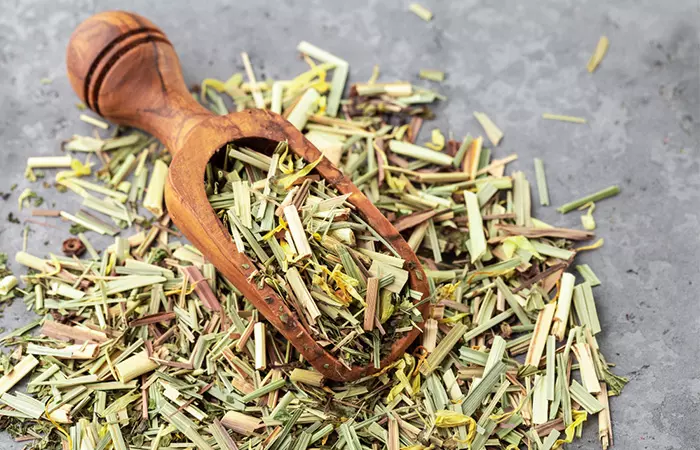
You Will Need
- 3 teaspoons of dried lemongrass
- 1 cup of water
Processing Time
5 minutes
Process
- Boil the dried lemongrass in one cup of water and let it cool.
- Strain the cooled liquid and set it aside.
- Wash and condition your hair. Pour the lemongrass water through your hair as a final rinse.
How Often?
Repeat this twice a week.
16. Saw Palmetto And Olive Oil
You Will Need
- 10 drops of saw palmetto essential oil
- 2 tablespoons of olive oil
Processing Time
45 minutes
Process
- Dilute the saw palmetto oil with olive oil in a bowl.
- Rub this oil blend into your scalp and apply it to your hair.
- Massage your hair for 10 minutes. Leave the oil on your hair for 30 minutes.
- Wash with a mild shampoo.
- You may also eat the saw palmetto fruit to curb your hair loss problem.
How Often?
Repeat 3 to 4 times a week.
These are the effective herbal recipes that may help treat hair loss. But how safe are they?
Potential Risks Of Using Herbs For Hair Loss
Herbs seem to be potentially safe alternatives for treating hair loss (46). Most cosmetic hair products contain chemicals that may damage hair or cause adverse effects. However, anecdotal evidence suggests that some herbs may cause allergic reactions or contact dermatitis in certain individuals. Hence, always do a patch test before using herbs or any home remedies for hair growth on the scalp. If you notice any redness, irritation, or swelling, stop use and consult your doctor.
Infographic: Simple Tips To Manage Hair Loss
Herbs are an inexpensive, natural, and safer way to stimulate hair growth in comparison with chemical products. However, it is important to take care of your hair on a daily basis. We have listed some simple tips to manage hair loss and get healthy hair.
Check out the infographic below to know more!
Some thing wrong with infographic shortcode. please verify shortcode syntax
Several herbs can be utilized as hair tonics, color enhancers, cleansers, conditioners, and hair growth therapies. These herbs have been shown to promote hair thickness, nutrition, and growth. You can experiment with the recipes we’ve provided and see how they turn out for you. However, anecdotal evidence reveals that certain herbs may induce allergic responses or contact dermatitis in certain people. As a result, always perform a patch test before using any remedies that include herbs for hair loss and applying them as mixtures to your entire scalp. If you have any negative effects, stop using it and talk to your doctor.
Frequently Asked Questions
Can turmeric boost hair growth?
Yes. The curcumin in turmeric helps develop blood vessels, thus improving blood circulation in the scalp and hair growth.
Can I put rosemary oil directly on my scalp?
No. Direct application of rosemary oil may cause irritation, redness, and itching in some people.
Can I leave rosemary oil in my hair overnight?
No. It is recommended not to leave rosemary oil in your hair for more than 2 hours as it may cause irritation in people with sensitive skin.
Does ginger grow hair?
Yes. The magnesium, potassium, phosphorous, and vitamins present in ginger help stimulate hair growth.
Do herbal remedies for hair loss have any long-term effects?
Herbal remedies for hair loss may offer long-term benefits, such as improved scalp health and hair strength. However, individual results may vary, and prolonged use should be monitored to avoid potential side effects.
Illustration: Herbs For Hair Loss That Stimulate Hair Growth
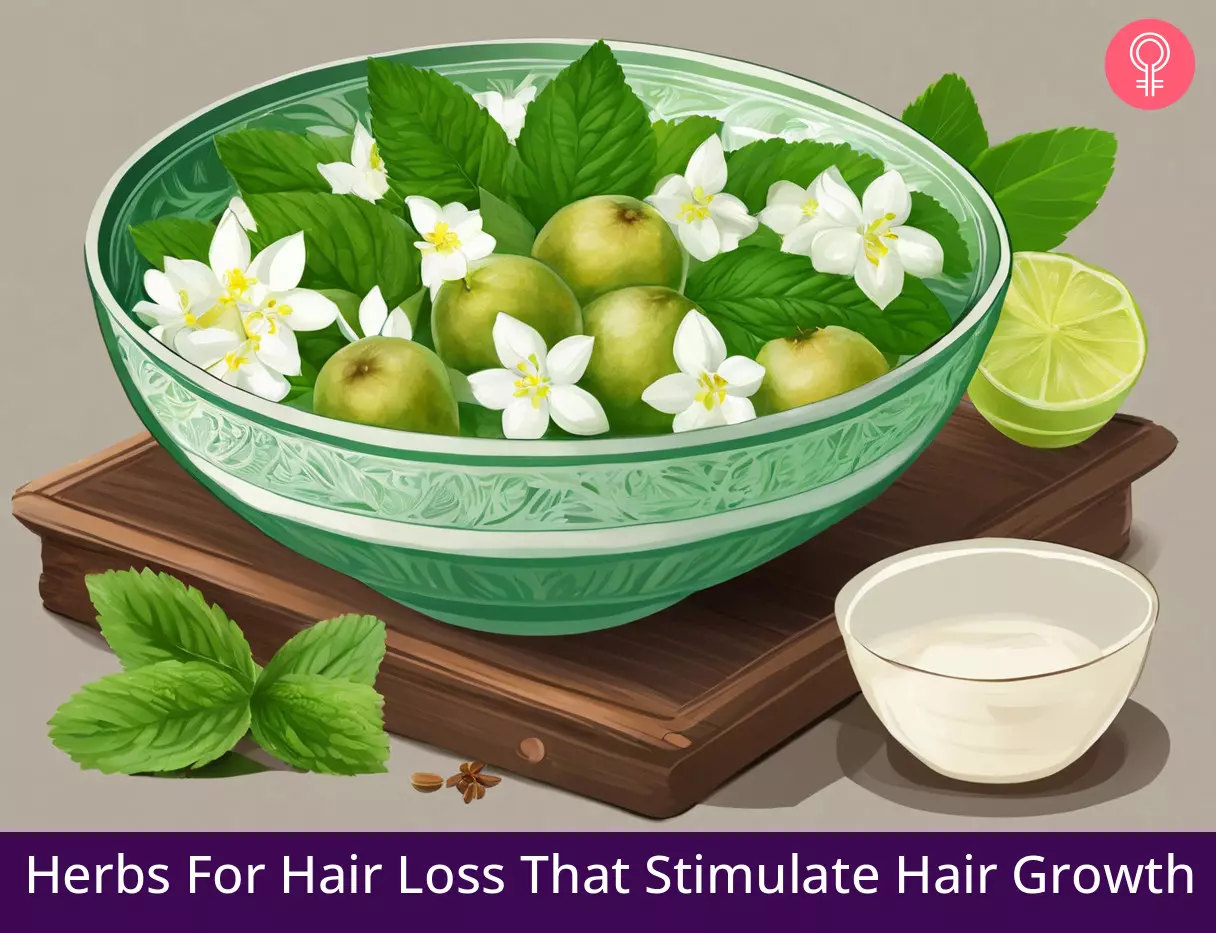
Image: Stable Diffusion/StyleCraze Design Team
Explore the top 10 Ayurvedic herbs in this informative video. Unlock the secrets to achieving lush and thriving hair naturally.
Personal Experience: Source
StyleCraze's articles are interwoven with authentic personal narratives that provide depth and resonance to our content. Below are the sources of the personal accounts referenced in this article.
i. I tried amla on my hair for 7 days & this happened! *before & after results*https://www.youtube.com/watch?v=beYAdXiX9pw
References
Articles on StyleCraze are backed by verified information from peer-reviewed and academic research papers, reputed organizations, research institutions, and medical associations to ensure accuracy and relevance. Read our editorial policy to learn more.
- Prospect of Herbs as Hair Growth Potential,
https://journals.innovareacademics.in/index.php/ijms/article/view/16471/19327 - A Review of the Natural Resources Used to Hair Color and Hair Care Products, https://www.jpsr.pharmainfo.in/Documents/Volumes/vol9Issue07/jpsr09071701.pdf
- An Extract from a Hairy Root Culture from Basil to Treat Hair Loss,
http://tst.pg2.at/abstracts/data/full_papers/full_paper_20.pdf - Hair Is an Accoutrement, Hair Is Jewelry, Its an Accessory- Realize the Killing Effects of Shampoo,
https://www.plantsjournal.com/archives/2017/vol5issue2/PartD/5-2-29-448.pdf - Rosemary Oil Vs Minoxidil 2% for the Treatment of Androgenetic Alopecia: a Randomized Comparative Trial,
https://pubmed.ncbi.nlm.nih.gov/25842469/ - Promotion of Hair Growth by Rosmarinus Officinalis Leaf Extract,
https://pubmed.ncbi.nlm.nih.gov/22517595/ - Rosemary ( Rosmarinus Officinalis L., Syn Salvia Rosmarinus Spenn.) and Its Topical Applications: a Review,
https://www.ncbi.nlm.nih.gov/pmc/articles/PMC7284349/ - Herbal Medicines as an Effective Therapy in Hair Loss a Review,
https://www.rjpbcs.com/pdf/2010_1(3)/90.pdf - “EVALUATION OF HAIR GROWTH ACTIVITY OF HIBISCUS ROSASINENSIS AND CALOTROPIS GIGANTEA LEAVES ON STRESS INDUCED ALOPECIA” https://wjpr.net/abstract_file/8592
- In Vivo and in Vitro Evaluation of Hair Growth Potential of Hibiscus Rosa-Sinensis Linn,
https://pubmed.ncbi.nlm.nih.gov/12963149/ - Herbal Preparations for the Treatment of Hair Loss,
https://link.springer.com/article/10.1007/s00403-019-02003-x - Taxonomy, Etymology & Uses of Aloe Vera,
https://www.rroij.com/open-access/taxonomy-etymology–uses-of-aloe-vera.pdf - A Study on the Extracts of Cuscuta Reflexa Roxb. in Treatment of Cyclophosphamide Induced Alopecia, https://www.ncbi.nlm.nih.gov/pmc/articles/PMC3922840/
- A Parasitic Medicinal Plant Cuscuta Reflexa: an Overview,
https://www.ijser.org/researchpaper/A-parasitic-Medicinal-plant-Cuscuta-reflexa-An-Overview.pdf - Indian Herbs That Act as 5-Alpha Reductase Inhibitors,
https://www.ijpcbs.com/files/15-07-17/12.pdf - Eclipta Alba Extract With Potential for Hair Growth Promoting Activity,
https://pubmed.ncbi.nlm.nih.gov/19481595/ - “Premature graying of hair” https://ijdvl.com/premature-graying-of-hair/
- A Review on Physicochemical & Pharmacological Activity of Eclipta Alba, https://www.thepharmajournal.com/archives/2018/vol7issue9/PartB/7-9-5-155.pdf
- Preparation and Evaluation of Herbal Hair Oil,
https://ijrar.com/upload_issue/ijrar_issue_20542769.pdf - Formulation and Examination of Organic Oil and Shampoo from Fish Scales,
https://www.ijitee.org/wp-content/uploads/papers/v9i2s2/B11651292S219.pdf - A Comprehensive Review on Nyctanthes Arbortristis,
https://www.ijddr.in/drug-development/a-comprehensive-review-on-nyctanthes-arbortristis.pdf - Effectiveness Test of Fenugreek Seed (trigonella Foenum-Graecum L.) Extract Hair Tonic in Hair Growth Activity, http://www.journalcra.com/article/effectiveness-test-fenugreek-seed-trigonella-foenum-graecum-l-extract-hair-tonic-hair-growth
- Effectiveness Test Combination Ethanol Extracts of Fenugreek Seed (trigonella Foenum-Graecum L.) and Cayenne Fruit (capsicum Annuum L.) in Hair Growth Activity,
https://www.ijppr.humanjournals.com/wp-content/uploads/2017/12/17.Andri-Prasetiyo-Anny-Victor-Purba.pdf - Hair Growth-Promoting Activity of Hot Water Extract of Thuja Orientalis,
https://www.ncbi.nlm.nih.gov/pmc/articles/PMC3637267/ - Pharmacognostical Standardization of Leaves of Thuja Orientalis (linn.) Franco, https://www.scholarsresearchlibrary.com/articles/pharmacognostical-standardization-of-leaves-of-thuja-orientalis-linn-franco.pdf
- Herbal Remedies of Azadirachta Indica and Its Medicinal Application,
https://www.jocpr.com/articles/herbal-remedies-of-azadirachta-indica-and-its-medicinal-application.pdf - Antifungal Properties of Neem (azardirachta Indica) Leaves Extract to Treat Hair Dandruff, https://www.researchgate.net/publication/333671637_ANTIFUNGAL_PROPERTIES_OF_NEEM_AZARDIRACHTA_INDICA_LEAVES_EXTRACT_TO_TREAT_HAIR_DANDRUFF
- Herbal Plants: Used as a Cosmetics,
https://www.scholarsresearchlibrary.com/articles/herbal-plants-used-as-a-cosmetics.pdf - Neem Oil: an Herbal Therapy for Alopecia Causes Dermatitis,
https://pubmed.ncbi.nlm.nih.gov/18627678/ - “Neem in Dermatology: Shedding Light on the Traditional Panacea”
https://www.ncbi.nlm.nih.gov/pmc/articles/PMC8906293/ - Indian Medicinal Plants Used in Hair Care Cosmetics: a Short Review, https://www.researchgate.net/publication/235989845_Indian_Medicinal_Plants_Used_in_Hair_Care_Cosmetics_A_Short_Review
- Ethnobotany, Phytochemistry, Cultivation and Medicinal Properties of Garden Sage (salvia Officinalis L.), https://www.phytojournal.com/archives/2019/vol8issue3/PartAS/8-3-98-315.pdf
- A Comprehensive Review on Herbal Cosmetics,
https://ijpsr.com/bft-article/a-comprehensive-review-on-herbal-cosmetics/?view=fulltext - Herbal Extracts Induce Dermal Papilla Cell Proliferation of Human Hair Follicles, https://www.ncbi.nlm.nih.gov/pmc/articles/PMC4695417/
- Novel Herbs Used in Cosmetics for Skin and Hair Care : a Review,
http://www.plantarchives.org/SPECIAL%20ISSUE%2025-1/234__3784-3793_.pdf - Study of Vasodilating and Regenerative Effect of the Gel With Nettle Juice Intended for Telogen Effluvium Treatment, https://www.japsonline.com/admin/php/uploads/2532_pdf.pdf
- Study of Colouring Effect of Herbal Hair Formulations on Graying Hair,
https://www.ncbi.nlm.nih.gov/pmc/articles/PMC4471652/ - Medicinal Properties of Nardostachys Jatamansi (a Review),
https://www.orientjchem.org/pdf/vol32no2/OJC_Vol32_No2_p_859-866.pdf - A Non Comparative Open Label Pilot Study to See the Efficacy and Consumer Response of Vegetal Hair Well in Preventing Hair Fall and Promoting Hair Growth,
http://www.journalijar.com/uploads/256_IJAR-2736.pdf - The Use of Serenoa Repens (saw Palmetto) in Hair Care Products,
https://www.researchgate.net/publication/331548614_The_Use_of_Serenoa_Repens_Saw_Palmetto_in_Hair_Care_Products - An Overview on Ashwagandha: A Rasayana (Rejuvenator) of Ayurveda
https://www.ncbi.nlm.nih.gov/pmc/articles/PMC3252722/ - Efficacy of antioxidants in human hair
https://pubmed.ncbi.nlm.nih.gov/23123594/ - Ashwagandha root in the treatment of non-classical adrenal hyperplasia
https://www.ncbi.nlm.nih.gov/pmc/articles/PMC4543599/ - Effectiveness of topical peppermint oil on symptomatic treatment of chronic pruritus
https://www.ncbi.nlm.nih.gov/pmc/articles/PMC5066694/ - Peppermint Oil Promotes Hair Growth without Toxic Signs
https://www.ncbi.nlm.nih.gov/pmc/articles/PMC4289931/ - Hair Growth: Focus on Herbal Therapeutic Agent,
https://pubmed.ncbi.nlm.nih.gov/26058803/
Read full bio of Dr. Shruti Chavan
Read full bio of Anjali Sayee
Read full bio of Eshna Das
Read full bio of Monomita Chakraborty





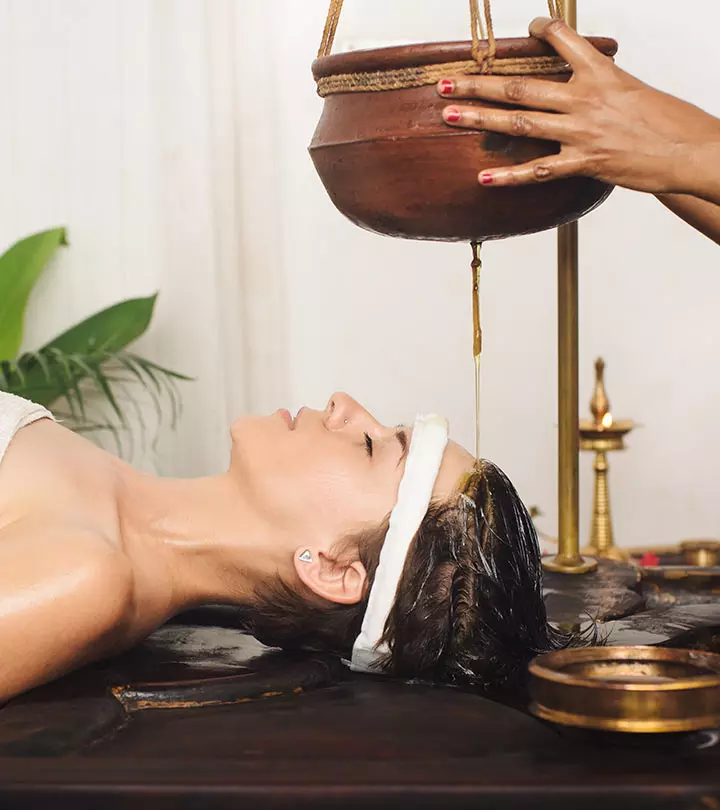

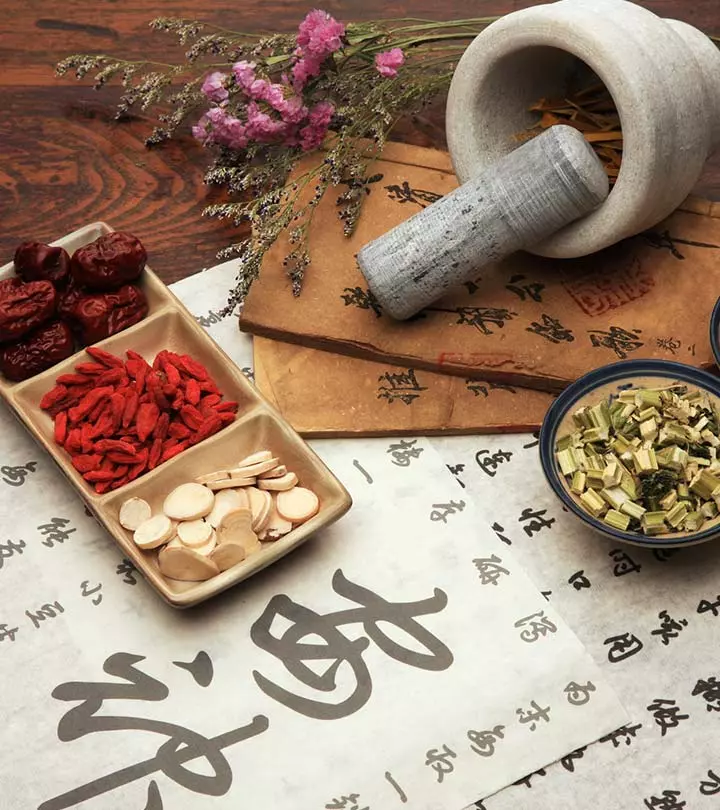
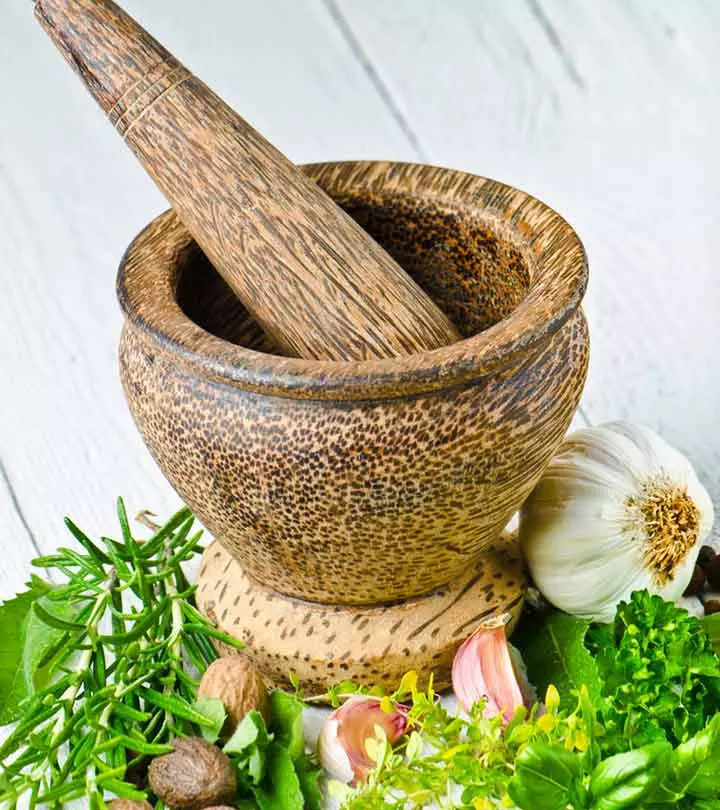

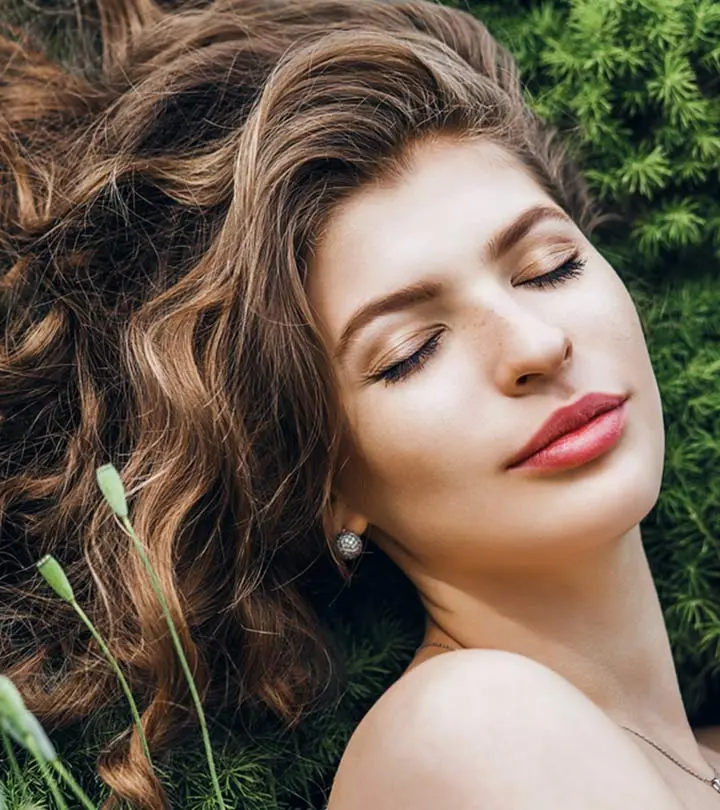
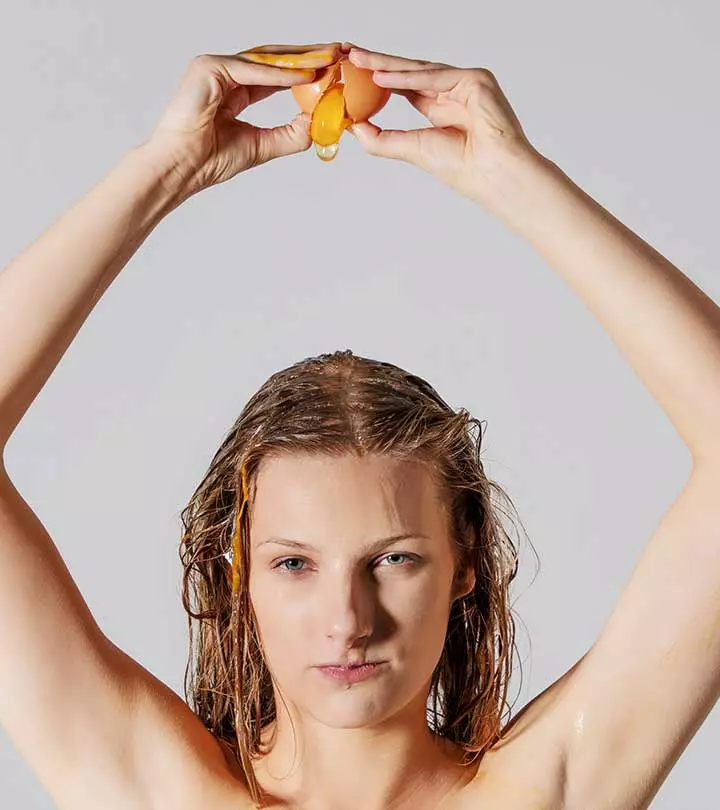
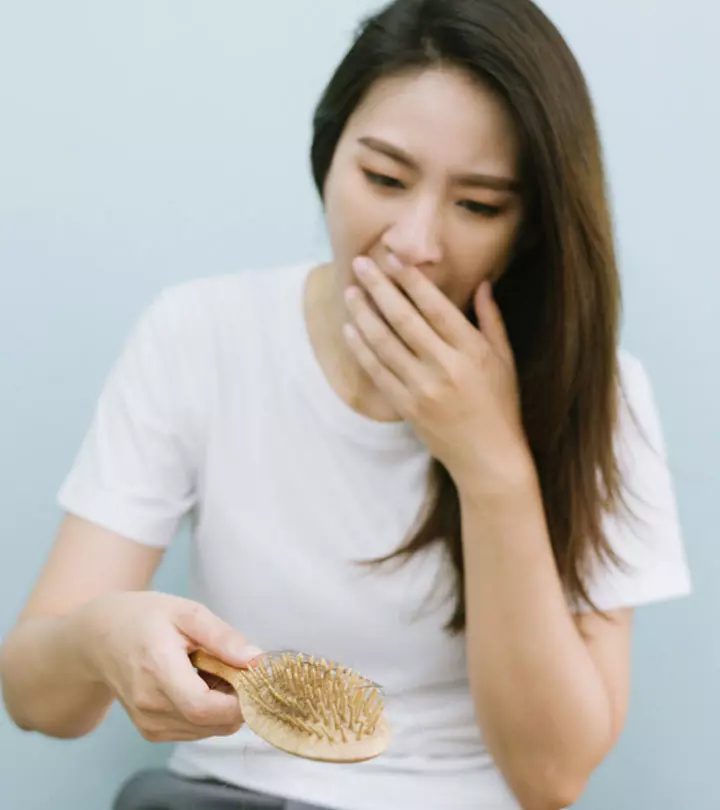

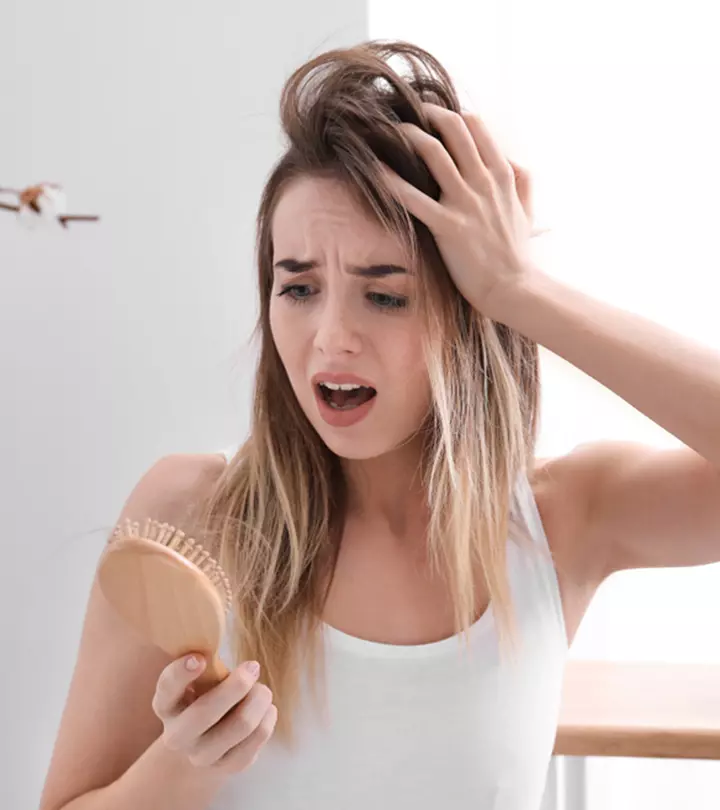
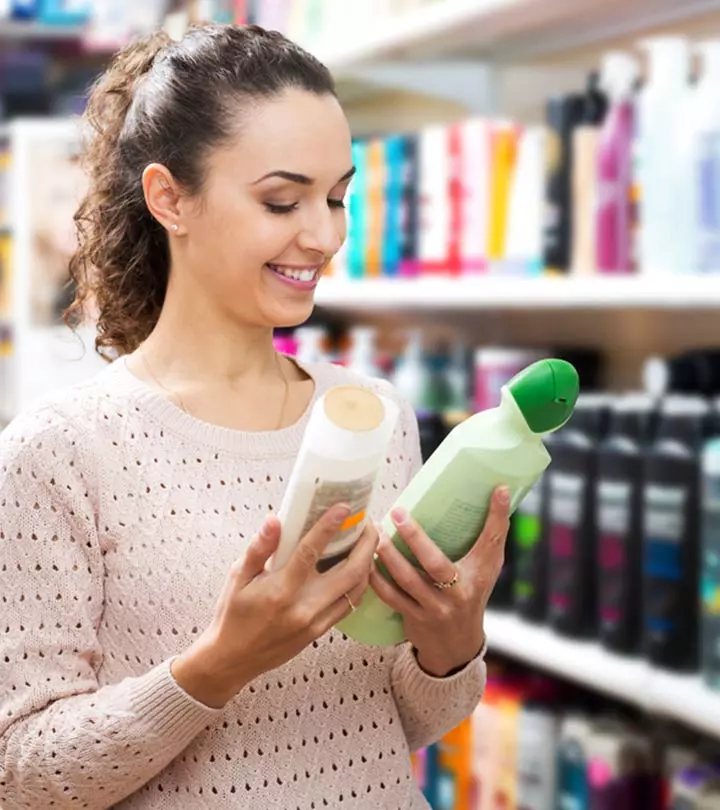
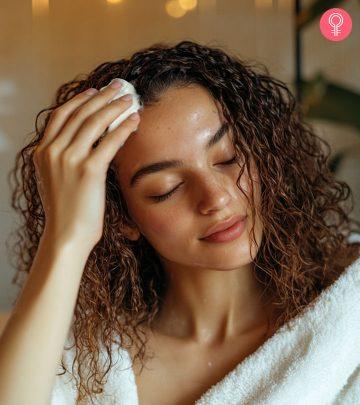
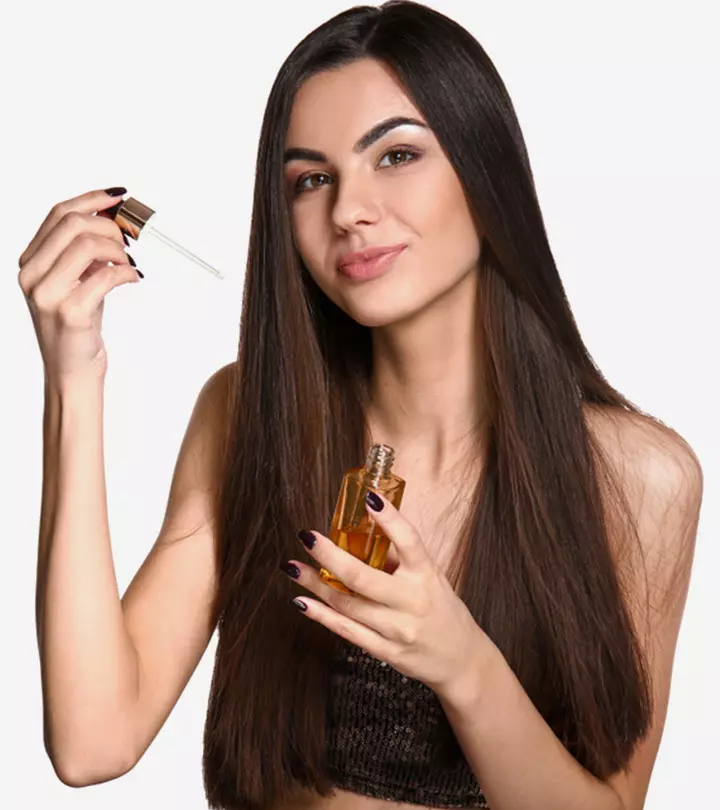
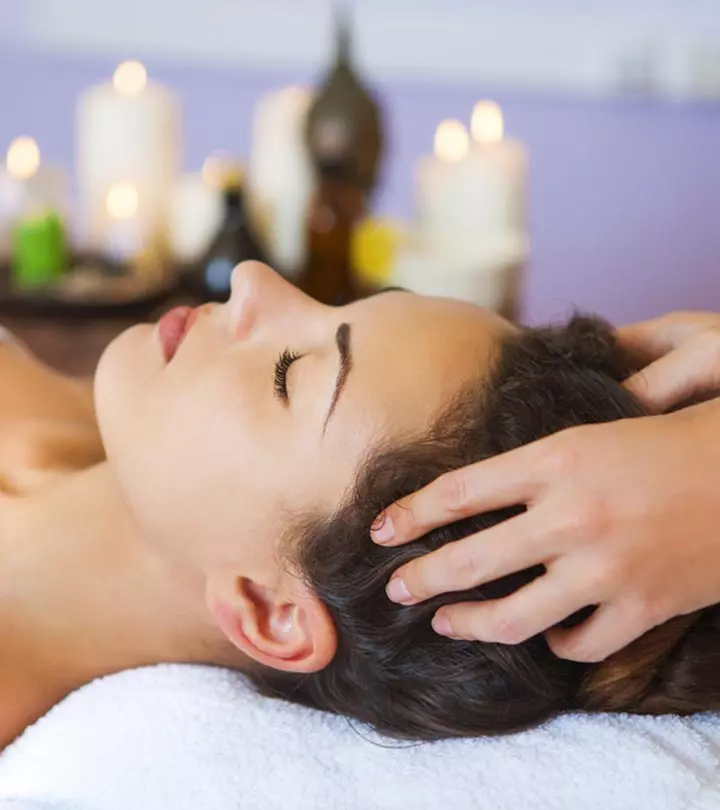
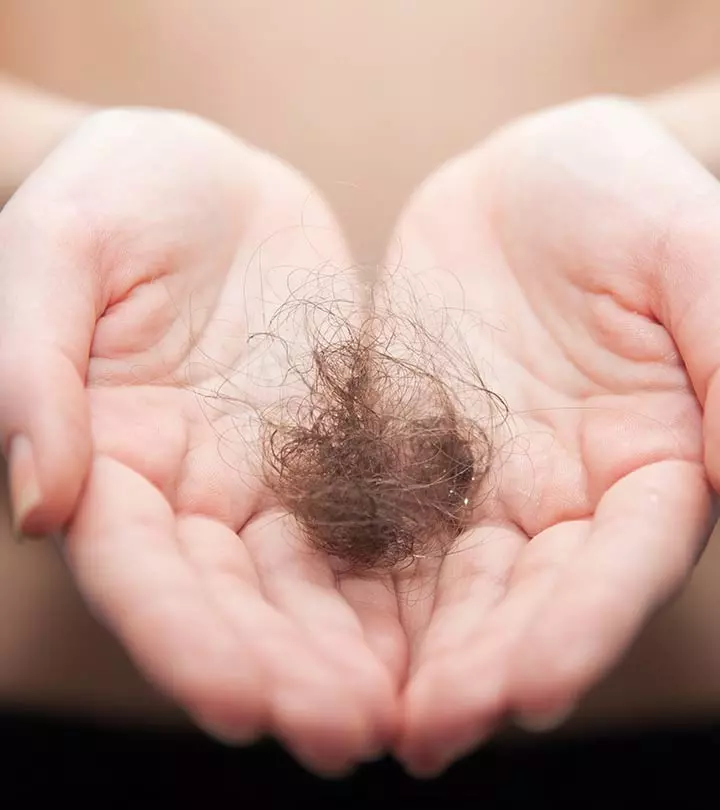
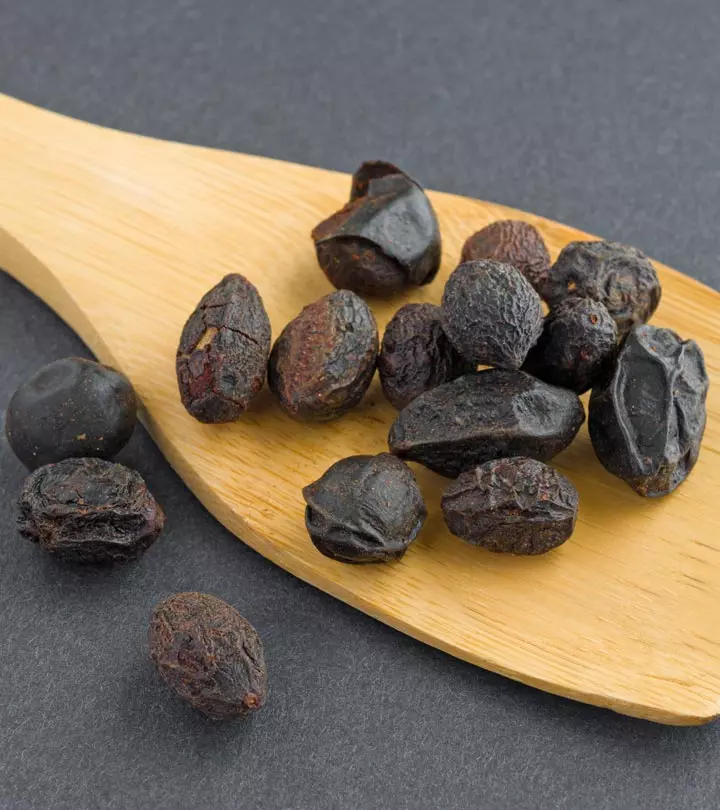
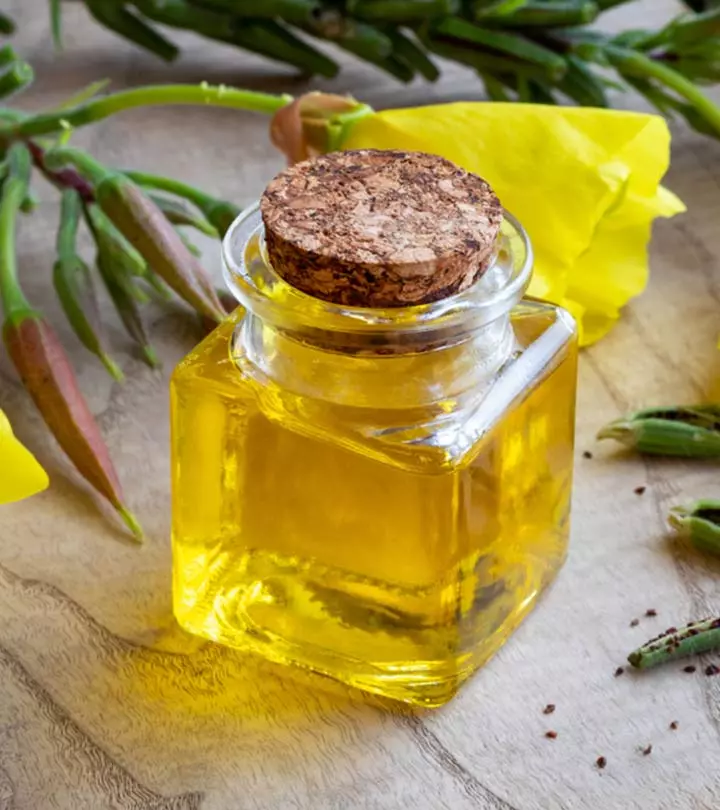
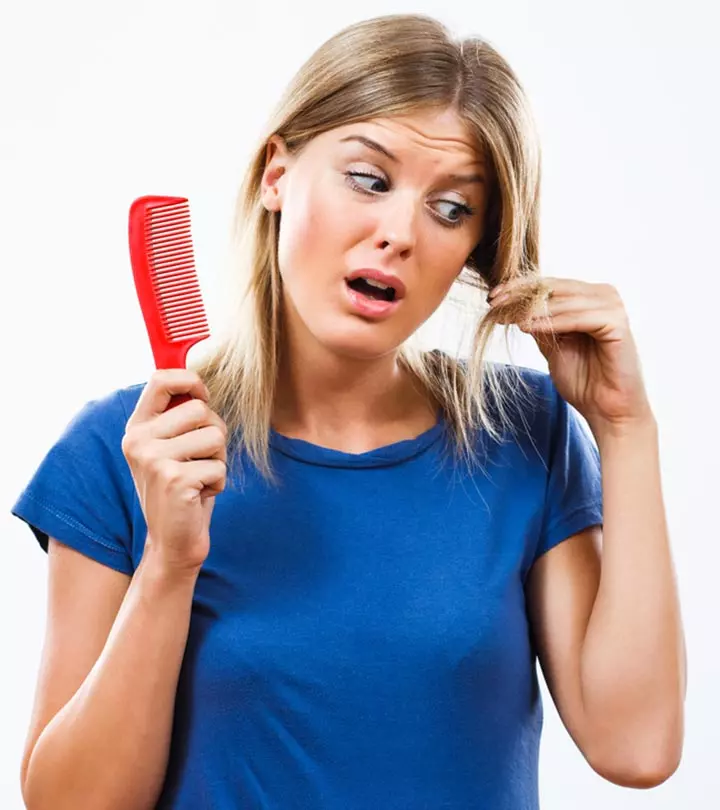
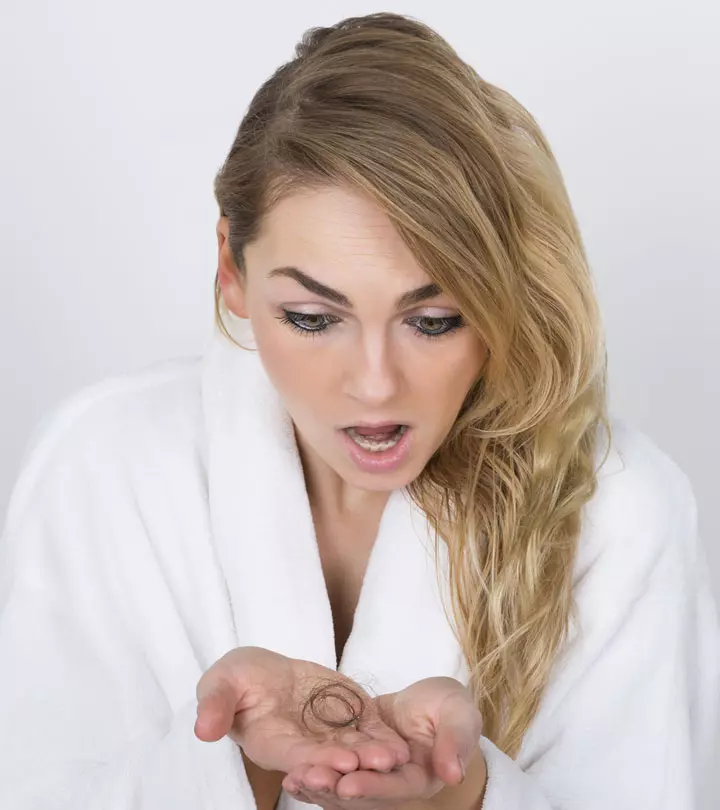

Community Experiences
Join the conversation and become a part of our empowering community! Share your stories, experiences, and insights to connect with other beauty, lifestyle, and health enthusiasts.